
12 Golden Country Greats is the fifth studio album by the American rock band Ween, and their third on Elektra Records. It is the only album on which the group limited themselves to a specific genre of music.

"Takin' Care of Business" is a song written by Randy Bachman and first recorded by Canadian rock group Bachman–Turner Overdrive (BTO) for their 1973 album Bachman–Turner Overdrive II. The lead vocal is sung by Randy.
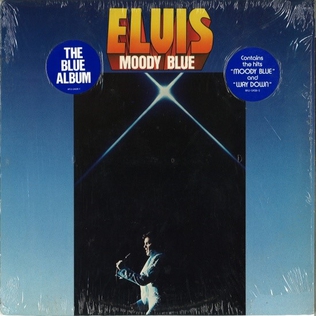
Moody Blue is the twenty-fourth and final studio album by American singer and musician Elvis Presley, released on July 19, 1977, by RCA Records, about four weeks before his death. The album was a mixture of live and studio work and included the four tracks from Presley's final studio recording sessions in October 1976 and two tracks left over from the previous Graceland session in February 1976. "Moody Blue" was a previously published hit song recorded at the earlier Graceland session and held over for this album. Also recorded at the February session was "She Thinks I Still Care". "Way Down" became a hit after Presley's death less than one month after this album's release. The album was certified Gold and Platinum on September 12, 1977, and 2× Platinum on March 27, 1992, by the RIAA.
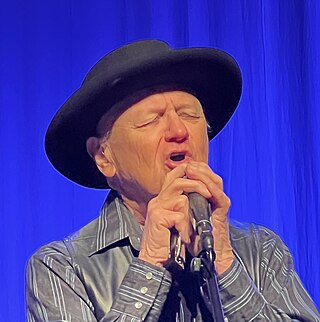
Charlie McCoy is an American harmonica virtuoso and multi-instrumentalist in country music. He is best known for his harmonica solos on iconic recordings such as "Candy Man", "He Stopped Loving Her Today", "I Was Country When Country Wasn't Cool", and others. He was a member of the progressive country rock bands Area Code 615 and Barefoot Jerry. After recording with Bob Dylan in New York, McCoy is credited for unknowingly influencing Dylan to decide to come to Nashville to record the critically acclaimed 1966 album Blonde on Blonde.
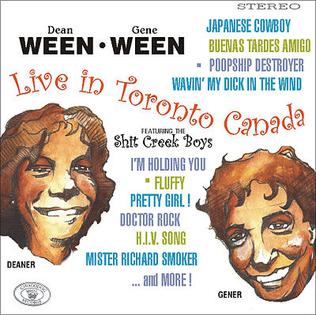
Live in Toronto Canada, is the second live album by the American rock band Ween, released in 2001 on their own Chocodog label. It was recorded during the now legendary tour with Bobby Ogdin and the Shit Creek Boys on October 23, 1996, at the Phoenix Theatre in Toronto, Ontario. The setlist is divided evenly between 12 Golden Country Greats tunes and previous fan favorites such as "Push th' Little Daisies" and "Buenas Tardes Amigo". The album exemplifies the Ween live experience, drunkenness and all. The album was reissued on vinyl in 2018 by Schnitzel Records.

Elvis in Concert is the live album released by RCA Records in October 1977 in conjunction with the television special of the same name which features some of the final performances of American singer and musician Elvis Presley. Videotaped and recorded in June 1977, both the special and album were broadcast and released on October 3, six weeks after Presley's death. The album peaked at No. 5 on the Billboard chart in late 1977. It was certified Gold and Platinum on October 14 and 3× Platinum on August 1, 2002, by the RIAA.

Elvis Country is the thirteenth studio album by American singer and musician Elvis Presley, released on RCA Records in January 1971. Recorded at RCA Studio B in Nashville, it reached number 12 on the Billboard 200. It peaked at number six in the United Kingdom, selling over one million copies worldwide. It was certified Gold on December 1, 1977, by the Recording Industry Association of America.
Ralph Gallant, known professionally as Larrie Londin, was an American drummer and session musician. According to journalist James Byron Fox, "If not the best known, Larrie is one of the most listened to drummers in the world. He played on more hit records during his career than any other drummer, with the exception of the legendary session drummer Hal Blaine, and his work covers the complete musical spectrum."
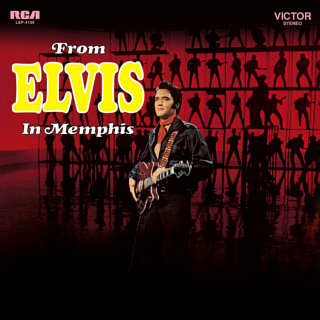
From Elvis in Memphis is the ninth studio album by American rock and roll singer Elvis Presley. It was released by RCA Records on June 2, 1969. It was recorded at American Sound Studio in Memphis in January and February 1969 under the direction of producer Chips Moman and backed by its house band, informally known as the Memphis Boys. Following the success of Presley's TV special Elvis and its soundtrack, the album marked Presley's return to non-soundtrack albums after the completion of his film contract with Metro-Goldwyn-Mayer (MGM).
Elvis: The Concert is a concert tour started in 1997 that features audio and video recordings of Elvis Presley, accompanied live by his 1970s backup band, backing vocalists, and orchestral musicians. In 2001, Elvis Presley Enterprises (EPE), on the website Elvis.com, described this show as, "in effect, Elvis' first-ever world concert tour, which began in America in 1998." According to EPE in 2006, the tour also features a 16-piece orchestra; at least for the major anniversary concerts, this role was fulfilled by the Memphis Symphony Orchestra.

Promised Land is the twenty-first studio album by American singer and musician Elvis Presley, released by RCA Records on January 8, 1975. It was recorded in December 1973 at Stax Records studios in Memphis and released on Presley's 40th birthday in January, 1975. In the US the album reached number 47 on the Billboard Top 200 chart and number 1 in Billboard's Top Country LPs chart, as well as the Cashbox Country albums chart. In the UK the album reached #21.

Elvis In Concert is a posthumous 1977 television special starring Elvis Presley. It was Elvis' third and final TV special, following Elvis and Aloha From Hawaii. It was filmed during Presley's final tour in the cities of Omaha, Nebraska, on June 19, 1977, and Rapid City, South Dakota, on June 21, 1977. It was broadcast on CBS on October 3, 1977, two months after Presley's death. It was transmitted by the BBC in the United Kingdom on June 9, 1978. Unlike the majority of Elvis' programs, it is unlikely to be commercially released on home video and is only available in bootleg form. This is because it showed Elvis near the end of his life, when he was in poor health due to various hereditary ailments and over use of many prescribed medications. Much of his performance reflects his poor health and he was also so heavy he didn't like to be touched. Parts of the special were used in the video documentary Elvis: The Great Performances and the theatrical documentary This is Elvis, both of which were released on home video. Parts of the special were recreated for the movie Elvis, specifically Presley's performance of "Unchained Melody".
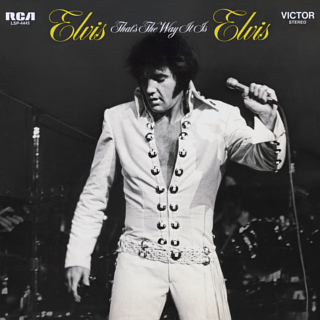
That's the Way It Is is the twelfth studio album by American singer and musician Elvis Presley, released on RCA Records, LSP 4445, in November 1970. It consists of eight studio tracks recorded at RCA Studio B in Nashville, and four live in-concert tracks recorded at The International Hotel in Las Vegas. It accompanied the theatrical release of the documentary film Elvis: That's the Way It Is, although it is not generally considered a soundtrack album. The album peaked at number 21 on the Billboard 200 and at number eight on the country chart. It was certified Gold on June 28, 1973, by the Recording Industry Association of America and up-graded to Platinum, for sales of a million copies on March 8, 2018.
Lawrence Gordon "Larry" Muhoberac, Jr. was an American musician, record producer, and composer who was also known under pseudonyms "Larry Owens" and "Larry Gordon".

The TCB Band is a group of musicians who formed the rhythm section of Elvis Presley's band from August 1969 until his death in 1977. The initials TCB stand for Taking Care of Business, a personal motto Presley adopted in the early 1970s. Although personnel changed over the years, the original members were James Burton, Jerry Scheff (bass), John Wilkinson, Larry Muhoberac (keyboards) and Ron Tutt (drums). They first appeared live at Presley's first Las Vegas performance at what was then known as the International Hotel on July 31, 1969.

Walk a Mile in My Shoes: The Essential '70s Masters is a five-disc box set compilation of the recorded work of Elvis Presley during the decade of the 1970s. It was released in 1995 by RCA Records, catalog number 66670-2, following similar box sets that covered his musical output in the 1950s and both his non-soundtrack and soundtrack work of the 1960s. This set's initial long-box release included a set of collectable stamps duplicating the record jackets of the LP albums on which the tracks in the box set were originally released by RCA. It also includes a booklet with an extensive session list and discography, as well as a lengthy essay by Dave Marsh, some of it excerpted from his 1982 book on Presley. The box set was certified gold by the Recording Industry Association of America on July 15, 1999.
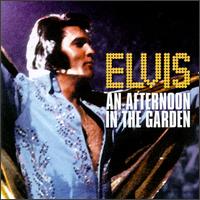
An Afternoon in the Garden is a live musical album recorded by American singer and musician Elvis Presley at Madison Square Garden on June 10, 1972. The album was released by RCA Records on the 25th anniversary of the concert in 1997 and on March 8, 2018 received an RIAA Gold Record certification for 500,000 copies sold.

Emory Lee Gordy Jr. is an American musician, songwriter and music producer. A former member of Emmylou Harris' backing band The Hot Band, he is best known for his association with country singer Patty Loveless, to whom he has been married since 1989. Gordy has produced and played bass guitar on nearly all of her albums, in addition to producing albums by Steve Earle, George Jones, and Alabama.

Suspicious Minds: The Memphis 1969 Anthology is a two-disc compilation of Elvis Presley's studio recordings at American Sound Studio during the winter of 1969, released in 1999, RCA 67677-2. This set features all of the master recordings made by Presley that would eventually feature on multiple singles as well as the albums From Elvis in Memphis and the studio disk of From Memphis to Vegas/From Vegas to Memphis. Original recordings produced by Chips Moman and Felton Jarvis.
Jerry Kirby Carrigan was an American drummer and record producer. Early in his career he was a member of the original Muscle Shoals Rhythm Section and later worked as a session musician in Nashville for over three decades. His style of drumming with a loose, deep-sounding snare drum melded country music with an R&B feel and helped develop a Nashville sound known as "Countrypolitan". His drumming is heard on many recordings which have become classics, some listed below. He recorded with Elvis Presley, Johnny Cash, Charley Pride, Jerry Lee Lewis, Ray Stevens, Kenny Rogers, George Jones and many others. He recorded with non-country artists as well, including Henry Mancini, Al Hirt, Johnny Mathis, and the Boston Pops Orchestra. In 2009 he was inducted into the "Nashville Cats", a cadre of top recording musicians chosen by the Country Music Hall of Fame. In 2010 he was inducted into the Alabama Music Hall of Fame. Carrigan was inducted into the Musicians Hall of Fame and Museum in 2019.

















